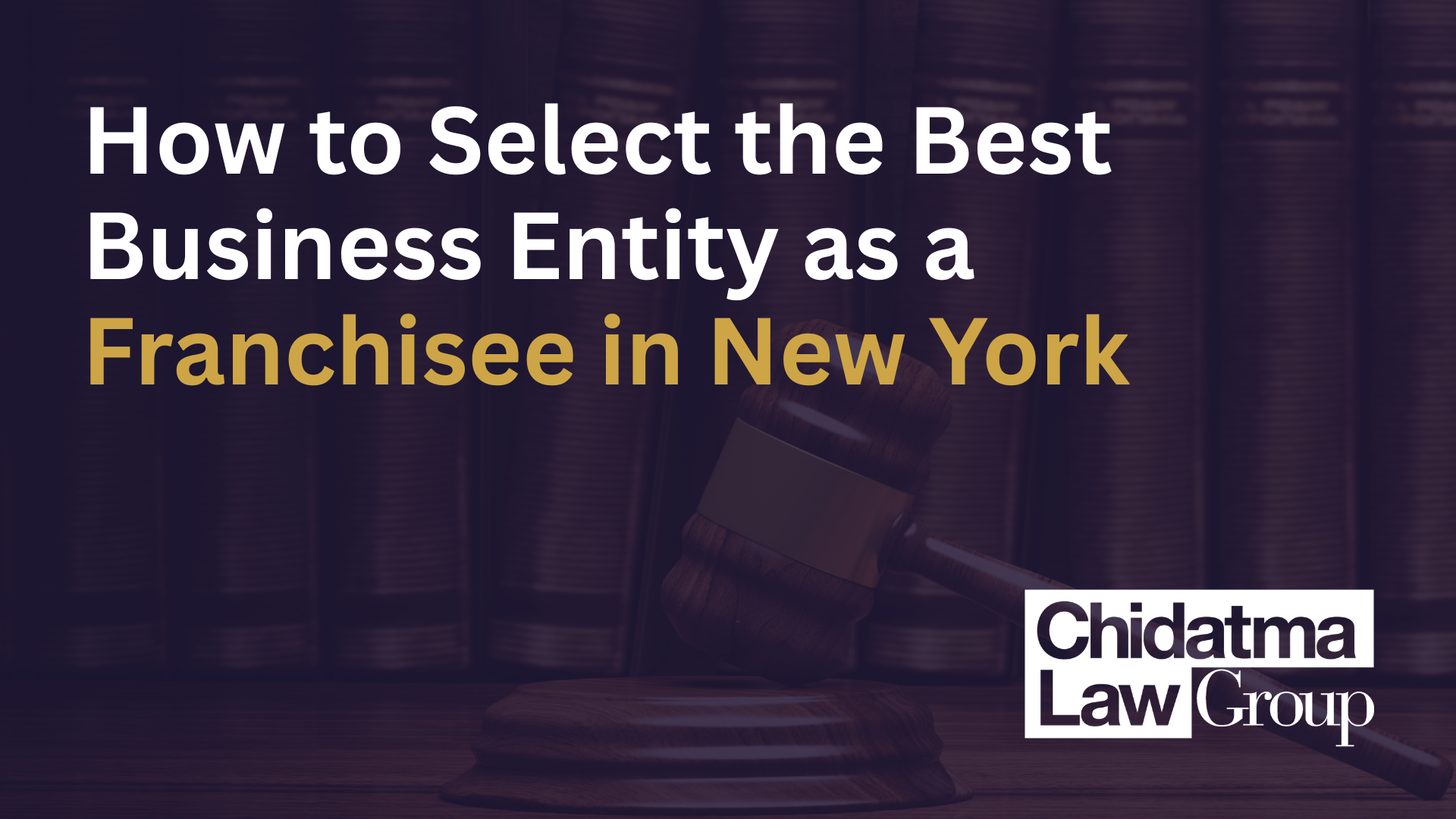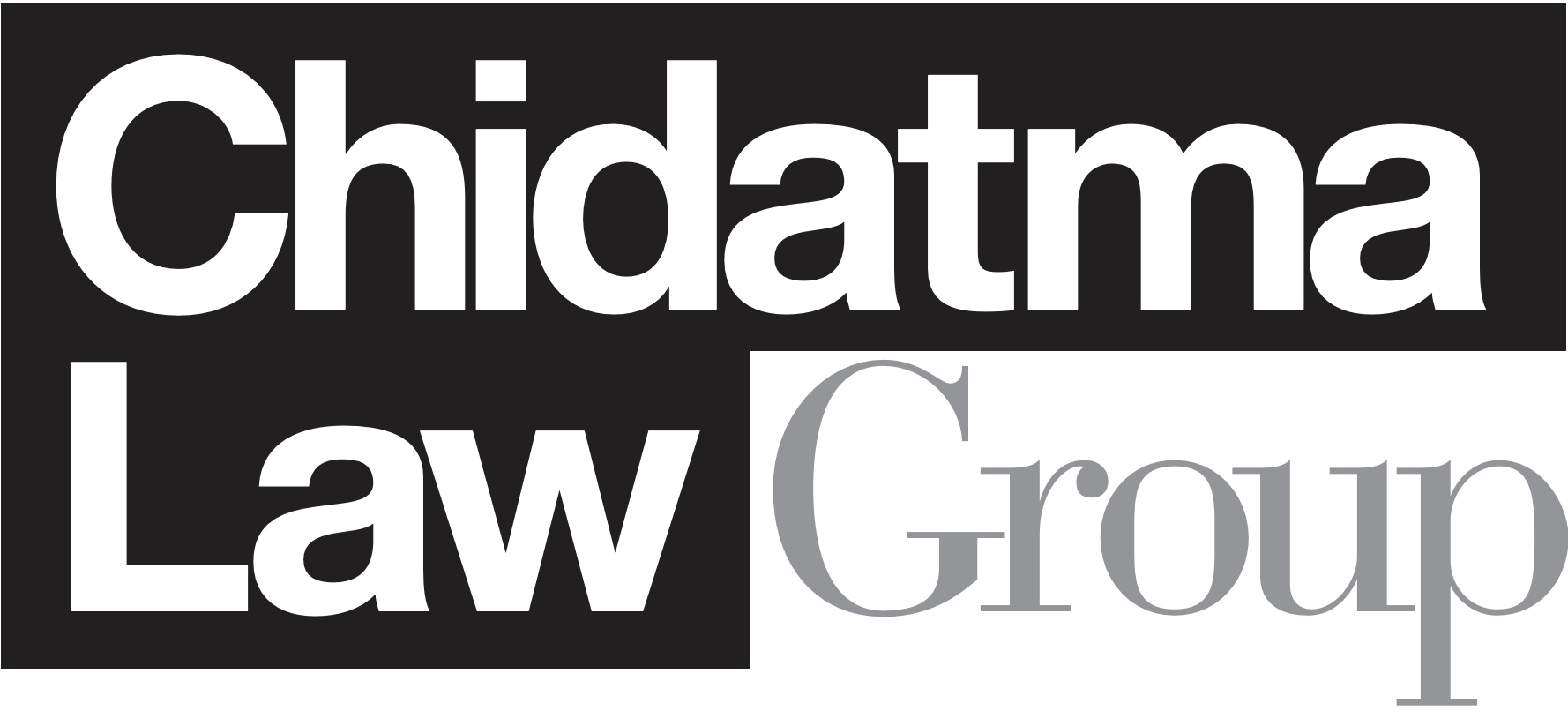
Starting a franchise business in New York means stepping into a system with established branding, operations, and support. But before you sign any agreements or open your doors, there’s a foundational decision to make: choosing the right business entity.
At Chidatma Law Group, we have helped countless New York entrepreneurs evaluate and form the right type of business structure for their goals. Whether you’re launching a fast-casual chain or joining a fitness franchise, selecting the best legal entity affects everything from taxes to liability.
So what are your options, and how do you make the right call? Let’s walk through it.
Why Entity Selection Matters
The type of business structure you choose as a franchisee affects:
- Your personal liability if the business faces a lawsuit or debt
- How you’re taxed (corporate vs. pass-through)
- How you manage ownership and operations
- Your ability to raise capital or bring in new partners
Franchisors often have preferences, too. Some may require that franchisees use a specific entity type. Either way, it’s worth understanding your choices and speaking with an attorney before moving forward.
Common Business Structures for Franchisees
Here’s a breakdown of the most common legal entities for New York franchisees:
1. Sole Proprietorship
Simple but risky. This is the easiest structure to start, with no formation paperwork required. But it offers no liability protection, meaning your personal assets are on the line if something goes wrong. For a franchise, this is rarely the best choice.
2. Partnership
Shared ownership, shared risks. If you’re teaming up with someone, a general partnership may seem appealing. But like sole proprietorships, general partnerships offer no liability shield unless you form a limited liability partnership (LLP). Even then, not all partners may be protected, and you’ll also need a detailed agreement.
3. Limited Liability Company (LLC)
Popular and flexible. LLCs offer personal liability protection and pass-through taxation, which means profits go directly to you and your partners without corporate tax. Many franchisees choose this structure because it combines flexibility with protection. You’ll still need an operating agreement and clear roles, especially if you’re working with family or friends.
4. Corporation (C-Corp or S-Corp)
Structured and investor-friendly. A C-Corp is a separate legal entity that pays corporate taxes. While this may sound less appealing, it allows you to issue stock and may help if you plan to grow or bring in outside investors.
An S-Corp avoids double taxation, but it has restrictions, such as limits on the number of shareholders and who can own shares. For most franchisees, an LLC or S-Corp might strike the right balance between protection and simplicity.
Questions to Consider Before Choosing
There’s no one-size-fits-all answer, but asking the right questions can help narrow your options:
- Will you own the franchise alone or with others?
- Do you plan to expand and open additional locations?
- Is your franchisor requiring a specific structure?
- Are you comfortable managing corporate formalities?
- Do you need liability protection from day one?
- How important are tax implications to your decision?
Getting answers to these questions can shape both your short-term setup and your long-term success.
How Legal Guidance Helps
Franchise agreements are already complex. Layering on entity formation adds another level of detail. That’s where the business law team at Chidatma Law Group can help. We assist franchisees in:
- Reviewing franchise contracts for risks or limitations
- Recommending the best entity based on your goals
- Drafting operating agreements or bylaws
- Registering your entity with New York State
Having the right structure in place helps you launch with clarity and confidence.
Set Your Franchise Up for Success
Choosing the right business entity might not be the flashiest part of starting a franchise, but it sets the tone for everything that follows. Whether you’re opening your first unit or building out a multi-location plan, the decisions you make now can save you headaches and money down the line.
The attorneys at Chidatma Law Group are here to help New York entrepreneurs navigate the legal side of business ownership. Reach out today to get started on solid ground.

